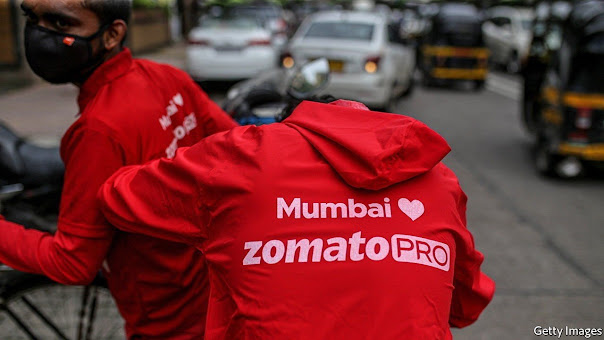TECHNOLOGY :
''' '' LOCAL HEROES LOCUS '' '''
TECHNOLOGY LOCAL HEROES : For vibrant, competitive internet businesses, look to emerging markets.
A DECADE AGO the relentless expansion of American Internet giants promised world domination.
With their vast home markets affording them economies of scale, the likes of Amazon, PayPal and Uber looked destined to monopolise the screens of everyone from Californian charmers to Kalahari farmers.
Today America still rules the global tech industry, broadly defined, accounting for 71% of the market value of listed firms. Nonetheless different pattern has emerged in the part of the technology industry that focuses on providing internet services to consumers.
Here, activity is more dispersed and less American. The trend has been highlighted this year by a rush of flotations of emerging market Internet firms.
Instead of a few monoliths, three different categories of business have formed. Using a taxonomy first drawn up by Asian Partners, an investment company, you can define the first group as global platforms. These still dominate in services when minimal physical presence is required, in particular search, social media and cloud computing.
Giants like Alphabet and Facebook [ now Meta ] generate just over half of their sales outside America and are among tech's most international businesses.
A second category has become important in some places : the protected national champion. China's tech giants are keen to expand abroad, but their profitable home markets are largely sealed against international competition and they are increasingly subject to heavy-handed guidance from their own government.
This protected model of tech is becoming popular in other authoritarian countries. Russia has favored home-grown outfits in e-commerce and fintech, and in the past year has cracked down on the activity of Silicon Valley firms.
The third digital type - local heroes - is prevalent across much of the rest of the world. In Asia and Latin America local and regional companies often rule in e-commerce, gaming, digital payments, ride -hailing, food delivery and other app-based services.
Examples from South-East Asia include Sea, Grab and GoTo; South Korea has Kakao and Coupang; and Argentina has Mercado-Libre.
In India giants including Reliance and Tata aim to promote super-apps that provide a range of services, even as specialists, such as Zomato, a delivery firm, are scaling up.
Typically, these firms operate in markets where it is useful to be on the ground, orwhere local tastes are what count. In South-East Asia supply chains are highly decentralised, rewarding such knowledge.
In fintech regulatory differences make it harder for international groups to thrive. Activity is booming.
India's Unified Payments Interface, a system which connects banks and non-banks to make cheap and immediate payments, recorded about $100 billion of transactions in October, more than four times the amount in the same month two years ago.
Mynt, a startup that provides mobile payments and loans, has just become the Philippines first ever unicorn, meaning that it is valued at over $1bn.
These businesses have been helped by the surge in the availability of capital, especially as global investors search for alternatives to China, where President Xi Jinping's tech crackdown will mean lower profits.
Of the $342 billion spent on takeovers of emerging markets tech firms so far this year, 71% came from economies outside China, the highest share in 11 years. Emerging market tech companies outside China issued $53 billion in equity markets so far in 2021, more than twice the previous record.
Venture capital outfits that once focused on America, and maybe China, are scouring the planet looking for startups.
The success of the third type of Internet firm is cheering. They boost competition and innovate to solve local problems, such as mapping cities without registered property.
In contrast to American and Chinese firms, they came with little to no geopolitical baggage and are creating clusters of software developers and seasoned investors around the world who may go on to work on Wall Street in order to get exposure to the digital economy.
Inevitably, there are risks. Some countries may be tempted to shelter their local heroes from competition, or limit how much outsiders can disrupt vested interests at home, Local expertise may not travel well.
The Honor and Serving of the Latest Global Operational Research on Internet, Commerce and Local Economies, continues. The World Students Society thanks The Economist.
With respectful dedication to Tech and Internet giants, and the Market, and then Students, Professors and Teachers of the World. See Ya all prepare and register for Great Global Elections on The World Students Society : wssciw.blogspot.com and Twitter - !E-WOW! - The Ecosystem 2011 :
Good Night and God Bless

.png)


0 comments:
Post a Comment
Grace A Comment!